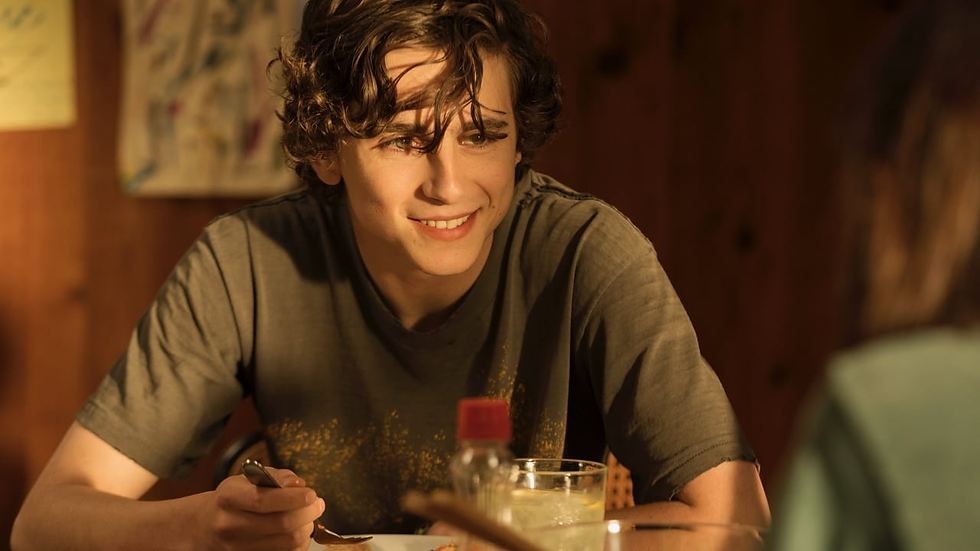Mistakes the father made in “Beautiful Boy’’ | Addiction Counselling
- Asma Kamal

- Mar 7, 2024
- 3 min read
Updated: Nov 9, 2024
“Fortunately I have a son, my beautiful boy! Unfortunately, he is a drug addict. Fortunately, he is in recovery. Unfortunately, he relapses. Fortunately, he is in recovery again. Unfortunately, he relapses. Fortunately, he is in recovery again. Unfortunately, he relapses. Fortunately, he is not dead.”
"Beautiful Boy," starring ‘The Office’s favorite, Steve Carell, and French actor, Timothee Chalamet in the lead, portrays a father's consistent efforts to assist his son in overcoming addiction, while exploring the intricacies of it and the toll it takes on family connections.
The movie is based on a book by the same name and draws on the memoirs of the father, David Sheff, who helps his son Nic navigate his struggles with addiction but despite his best attempts, he was not quite successful.
In this blog, we deduce where the father could’ve gone wrong.
if you know somebody who is struggling with addiction, this did not reach you ‘by chance.’
The complexities of addiction:
Difficulty in understanding the full depth of his son's suffering is one of the obstacles David Sheff faces in dealing with the multifaceted condition of addiction.
Addiction is a complex interaction of genetic, environmental, and psychological elements rather than just being a question of morality or willpower. It's possible that David's early ignorance of the permeating nature of addiction prevented him from offering the best kind of assistance.
“We deny the severity of our loved one's problem not because we are naive, but because we can't know.” - David Sheff
No promises of second chances:
David inadvertently perpetuates Nic's addiction cycle by giving him financial assistance and second chances out of love for his son. This enabling behavior can prevent the addict from realizing that they require professional treatment and personal accountability.
Overreliance on Personal Research Is a Red Flag:
A worried Sheff diligently researches to understand and solve his son's problems but consequently, his over-reliance on his study may have hindered him from realizing when professional assistance was required.
Rehabilitation-focused experts with training and therapy are best when started early for treatment.
Healthy Boundaries:
Dealing with a loved one's addiction requires maintaining healthy boundaries. It's possible that David's emotional involvement in Nic's hardships blurred these lines, making it difficult for the father and son to distinguish between intervention and support.
Throughout the movie, David struggles with finding the correct balance between helping him and letting him face the repercussions of his choices.
Guilty Conscience May Not Help Here:
David Sheff carries a great deal of guilt and self-blame, much like any other parent who sees their child struggle with addiction. According to the movie, David might have occasionally internalized the idea that he might have stopped Nic from becoming an addict.
It's possible that this emotional burden made it more difficult for him to act proactively and objectively in the circumstances.
“Caring about an addict is as complex and fraught and debilitating as addiction itself.” - David Sheff
"Beautiful Boy" is an introspective examination of David Sheff's journey and highlights the painful realities of handling the complications of addiction within the family unit.
The story questions the societal views on addiction and mental health in general while shedding light on the critical roles that empathy, education, and expert support play in the recovery process.
In the end, "Beautiful Boy" offers a poignant portrayal of the resiliency of the human spirit and the strength of love in the face of addiction.
Are you feeling lost during a loved one's addiction? Take control of your well-being today.
Koott offers expert support of experienced Malayali psychologists to help you break free from the cycle of guilt and uncertainty. Book your Online counseling session now and start your journey toward healing and understanding. You don't have to face this alone.










Comments